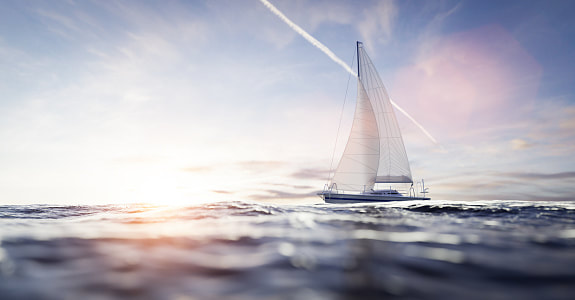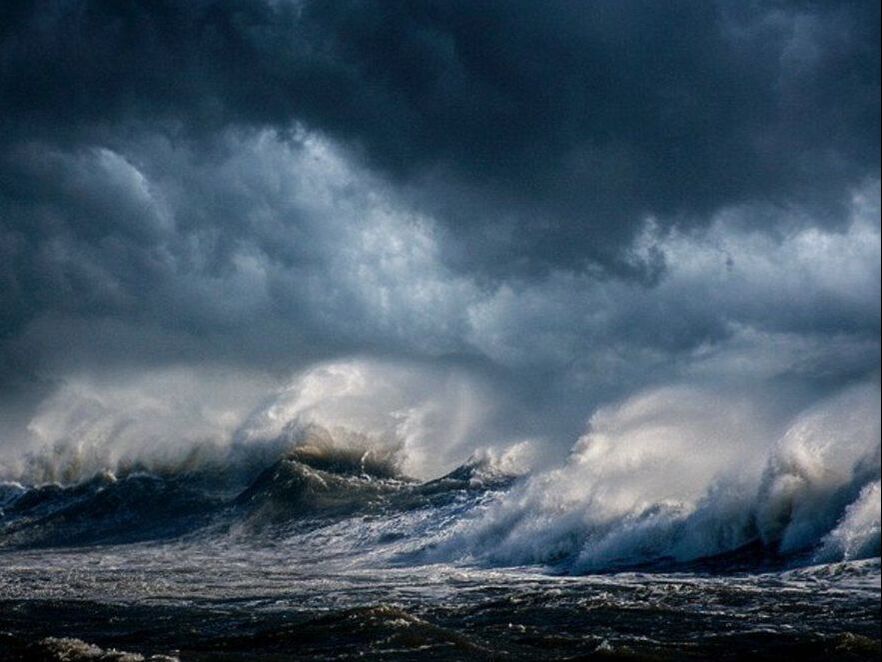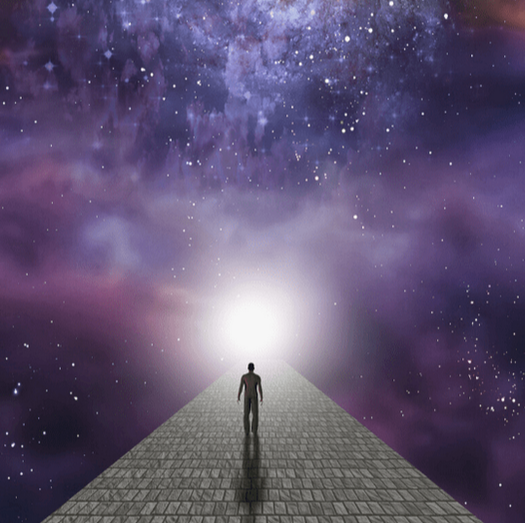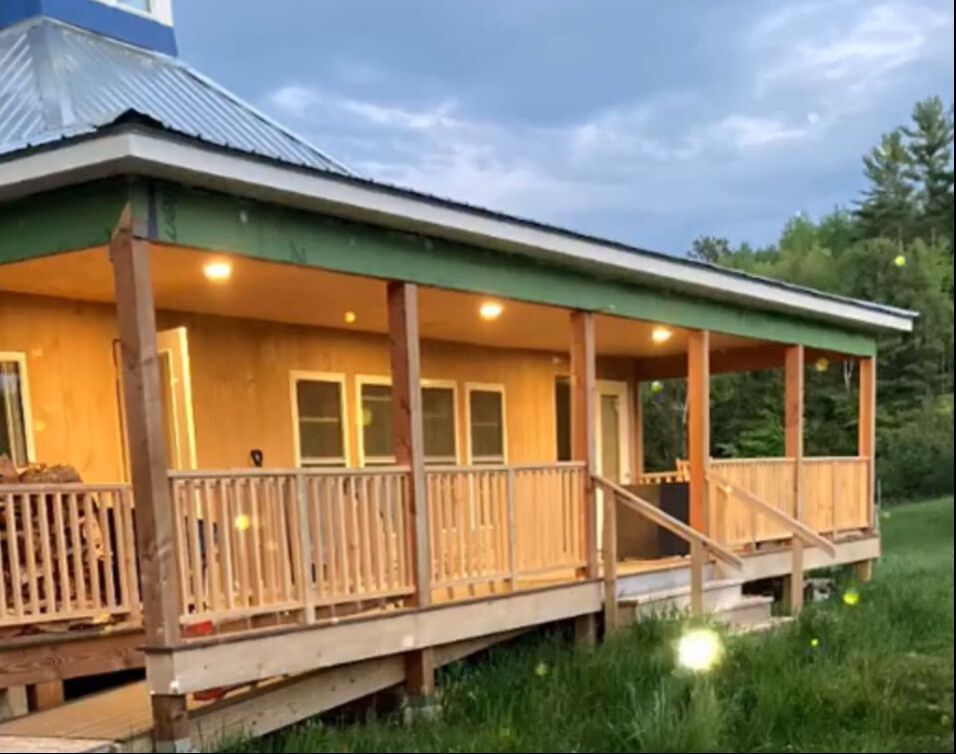SunDo Horizons: Setting Sail for a Greater Sense of Self
|
Have you ever wondered why we find it so difficult to move past the unsatisfied needs of our early developmental years—or how we can appear to have all of our essential desires accounted for, but still feel such a void in our lives?
Making sense of these nagging questions was the purpose behind the pioneering work of American psychologist Abraham Maslow and his “Hierarchy of Needs.” |
In his landmark 1943 paper A Theory of Human Motivation, Maslow describes a five-level model (often depicted as a pyramid)—beginning at the bottom with our most universal and concrete needs for food and shelter, and ascending to the upper realms of social respect and self-actualization. In the decades since its publication, the “Hierarchy of Needs” model has become a standard tool in discussions of human potential, but very recently, a cognitive scientist by the name of Scott Barry Kaufman took Maslow’s concept in a bold new direction—one that is perhaps even truer to the spirit of Maslow’s inquiry, and one that proves especially illustrative of the transcendental power of a self-development practice like SunDo.
A New Model for Personal Growth
As human beings, we do not live our lives in un-moving pyramids, and our truest calling is not to climb to the top of these structures and “win.” Life in human society is an ebbing, flowing—and even sometimes—tumultuous journey that we need the right vehicle to navigate our way through. This vessel needs to grant us both structural safety from the stormy waves around us, as well as the capacity to open ourselves up and work within our natural surroundings to transcend our limitations (or set sail, so to speak). This is where the brilliance of Kaufman’s “Boat Metaphor” comes in.
The “Sailboat of Needs” Kaufman describes in his 2020 book Transcendance, separates our drives into two categories—deficiency and growth—which reside in the two essential parts of the seafarer—the boat and the sail. In the lower region, the boat itself, we have security or deficiency needs like self-esteem, connection, and safety—the things we’d need in our internal constitution to keep us above water. However, without a sail, we are unable to go anywhere; we are unable to open ourselves to exploration, love, and purpose—what Kaufman calls “growth needs.” A boat without a perfectly solid base may be able to do a little sailing from time to time, but rarely travels far from the dock, as its sailor will always worry about whether the deficiencies in its frame will hold up. This is why working to create the most solid base of our vessel is the essential starting point for growth and self-actualization, and this lines up with the self-development approach of SunDo.
As human beings, we do not live our lives in un-moving pyramids, and our truest calling is not to climb to the top of these structures and “win.” Life in human society is an ebbing, flowing—and even sometimes—tumultuous journey that we need the right vehicle to navigate our way through. This vessel needs to grant us both structural safety from the stormy waves around us, as well as the capacity to open ourselves up and work within our natural surroundings to transcend our limitations (or set sail, so to speak). This is where the brilliance of Kaufman’s “Boat Metaphor” comes in.
The “Sailboat of Needs” Kaufman describes in his 2020 book Transcendance, separates our drives into two categories—deficiency and growth—which reside in the two essential parts of the seafarer—the boat and the sail. In the lower region, the boat itself, we have security or deficiency needs like self-esteem, connection, and safety—the things we’d need in our internal constitution to keep us above water. However, without a sail, we are unable to go anywhere; we are unable to open ourselves to exploration, love, and purpose—what Kaufman calls “growth needs.” A boat without a perfectly solid base may be able to do a little sailing from time to time, but rarely travels far from the dock, as its sailor will always worry about whether the deficiencies in its frame will hold up. This is why working to create the most solid base of our vessel is the essential starting point for growth and self-actualization, and this lines up with the self-development approach of SunDo.
|
Staying Afloat on the Sea of Qi
Much of SunDo practice is devoted to refining what amounts to the body’s own boat frame--the lower energy center or tancheon, located in the lower belly. A tancheon refined through SunDo’s smooth belly breathing, amidst the subtle instability of its held postures, is the perfect vessel to weather the waves of the world around us—it’s an unshakeable center that even in the most stressful of settings keeps us afloat. But why focus on the lower abdomen? |
In Chinese medicine, we understand this area of the body to be the essential energy-yoking region, and specifically in SunDo’s Taoist lineage, we refer to this area as the “Sea of Qi”—the place within the body where vital life force can be stored and cultivated.
From a more concrete angle, the neural networks of the stomach and lower abdomen have also in recent years come to be described by members of the wider scientific community as a “second brain” that is intimately connected to the body’s emotions and stresses. These anxieties and uncomfortable emotions are pushed away into the far reaches of our subconscious minds and carried in this part of the body as dull feelings of unease that may cast shadows over our days.
SunDo breath meditation nurtures the lower tancheon by supplying it with abundant Qi. Working with this bodily center of the subconscious mind, forces us to work through the uncomfortable deficient areas in our egos—our insecurities, worries, and even past traumas. We work to confront these inadequacies and refine them into a healthier and more whole sense of self through SunDo, a self-mastery tool that not only gives us the materials to construct an unwavering base, but also teaches us how to set sail for more profound horizons. Over time, nurtured by Qi and breath, this energy center becomes luminous as it radiates feelings of strength, stability and serenity.
From a more concrete angle, the neural networks of the stomach and lower abdomen have also in recent years come to be described by members of the wider scientific community as a “second brain” that is intimately connected to the body’s emotions and stresses. These anxieties and uncomfortable emotions are pushed away into the far reaches of our subconscious minds and carried in this part of the body as dull feelings of unease that may cast shadows over our days.
SunDo breath meditation nurtures the lower tancheon by supplying it with abundant Qi. Working with this bodily center of the subconscious mind, forces us to work through the uncomfortable deficient areas in our egos—our insecurities, worries, and even past traumas. We work to confront these inadequacies and refine them into a healthier and more whole sense of self through SunDo, a self-mastery tool that not only gives us the materials to construct an unwavering base, but also teaches us how to set sail for more profound horizons. Over time, nurtured by Qi and breath, this energy center becomes luminous as it radiates feelings of strength, stability and serenity.
|
Letting Down the Sail
Every bit as intrinsic to the human experience as the essential security needs of safety, connection, and self-esteem, is our natural desire for transcendence. We yearn for a oneness with life and our surrounding world as well as the ability to become what we are meant to be. Maslow had a particularly profound thought on this subject that he documented in a 1946 journal entry: “There seems to be no intrinsic reason why everyone shouldn’t be this way [self-actualizing]. I think of the self-actualizing man not as an ordinary man with something added, but rather as the ordinary man with nothing taken away.” — Abraham Maslow 1946 |
It’s not that we are seeking to become something special or more than what others are—it is simply that we desire at our core to become all that we are capable of being. This is the domain of the “sail,” or growth needs which encompass exploration, love, and purpose. When we feel secure in the foundation of our sailboats, we are able to lower our defenses and “let down our sails,” opening ourselves to a higher level of experience. We allow our curiosity and intuition to be our guides on the exciting and deeply meaningful journey to self-actualization.
While we are more likely to have growth experiences, and have them at greater frequency once we have worked through our deficiency needs, we are fortunately able to enjoy these little epiphanies at any level of development. “Peak experiences,” “flow states,” “subliminal consciousness,” and “mystic experiences” are but a few names for this unique category of growth experiences. These moments give us a glimpse into the “self with nothing taken away” that we desire to achieve and are associated with a number of mental and physical health benefits. Kaufman cites greater feelings of peace, inspiration, focus, better health, improved family life, greater sense of purpose, reduced fear of death, and added motivation for altruistic behavior among the slough of benefits reported from peak experiences. However, flow states and mystical experiences are not the end goal, but, rather, the wind hitting our sails, propelling us to our own self-actualization, and no practice provides a better way of unlocking these experiences than SunDo.
While we are more likely to have growth experiences, and have them at greater frequency once we have worked through our deficiency needs, we are fortunately able to enjoy these little epiphanies at any level of development. “Peak experiences,” “flow states,” “subliminal consciousness,” and “mystic experiences” are but a few names for this unique category of growth experiences. These moments give us a glimpse into the “self with nothing taken away” that we desire to achieve and are associated with a number of mental and physical health benefits. Kaufman cites greater feelings of peace, inspiration, focus, better health, improved family life, greater sense of purpose, reduced fear of death, and added motivation for altruistic behavior among the slough of benefits reported from peak experiences. However, flow states and mystical experiences are not the end goal, but, rather, the wind hitting our sails, propelling us to our own self-actualization, and no practice provides a better way of unlocking these experiences than SunDo.
Taking hold of self-actualization … by letting go
Taoism in many respects can be thought of as the art of letting go—we cannot make enlightenment “happen” or force peak experiences to occur—we have to get out of our own way, silence the mental chatter, and allow these pivotal moments to come over us. In SunDo we use guided breath meditation with the stillness of held postures to teach the body and mind how to let go and work with the energy of our environment to achieve expanded states of consciousness and internal awareness. Best of all, SunDo, when honed over consistent practice sessions, acts as a template for flow state and peak experiences that can be easily applied to any realms be it—performance arts, martials arts, sports, and countless other disciplines. It all comes down to letting go, building a solid boat frame, and opening our sails.
Taoism in many respects can be thought of as the art of letting go—we cannot make enlightenment “happen” or force peak experiences to occur—we have to get out of our own way, silence the mental chatter, and allow these pivotal moments to come over us. In SunDo we use guided breath meditation with the stillness of held postures to teach the body and mind how to let go and work with the energy of our environment to achieve expanded states of consciousness and internal awareness. Best of all, SunDo, when honed over consistent practice sessions, acts as a template for flow state and peak experiences that can be easily applied to any realms be it—performance arts, martials arts, sports, and countless other disciplines. It all comes down to letting go, building a solid boat frame, and opening our sails.
sundo summer retreatFriday July 29 to Sunday August 7
SunDo Retreat Center, 1347 Kitchel Hill Road, Barnet, VT Gather healing energy immersed in nature at our 3-day Summer Retreat happening in July at the SunDo Retreat Center. Activities include SunDo daily practice, trail walks and hikes, walking meditation in the labyrinth and holistic workshops. Early-bird pricing at $285 includes all meals and lodging. Early-bird rates until July 15 . Register | Learn More >> |



